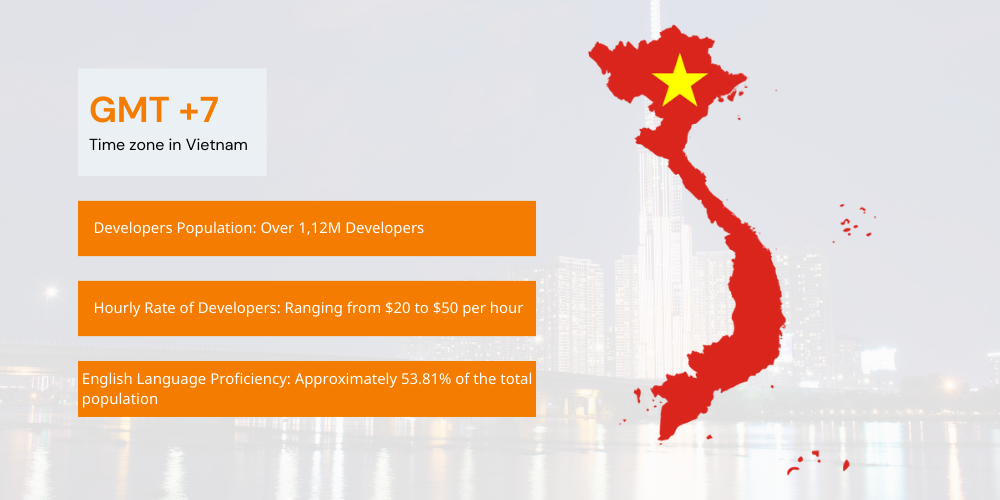How To Handle Time Zone Differences when Offshore Outsourcing


Offshore outsourcing has become a prevalent business strategy in today’s globalized world, offering numerous advantages such as cost reduction, access to a skilled global workforce, and increased flexibility. However, one of the most significant challenges that organizations face when outsourcing offshore is dealing with time zone differences. The disparity in time zones can create communication and coordination issues that, if not managed effectively, can lead to project delays and reduced efficiency.
In this article, we will explore strategies and best practices on how to handle time zone differences when offshore outsourcing to ensure successful collaboration and project delivery.
Understanding the Challenge
Before diving into the strategies for managing time zone differences, it’s essential to understand the nature of the challenge. When you outsource offshore, you are likely to work with teams located in different countries, continents, or regions, each operating on their local time. This can lead to several issues:
- Scheduling Conflicts: Coordinating meetings, discussions, and project updates can be challenging when your team members are scattered across the globe.
- Delayed Responses: Waiting for responses and clarifications due to time zone differences can slow down project progress and decision-making.
- Reduced Real-time Collaboration: The inability to collaborate in real-time can affect problem-solving and hinder the free flow of information.
- Burnout: Team members working outside their regular hours may experience burnout, impacting their productivity and motivation.
Read more: Outsourcing Software Development Challenges and How to Solve Them
Strategies to Manage Time Zone Differences
1. Establish Clear Communication Protocols
Effective communication is the cornerstone of successful offshore outsourcing, especially when dealing with time zone differences. Establish clear and comprehensive communication protocols that cover the following aspects:
- Preferred communication channels (email, instant messaging, video conferencing, etc.)
- Response time expectations
- A designated point of contact or team lead for each time zone
- Regular update schedules
- Documentation of discussions and decisions
Having well-defined communication protocols ensures that all team members are on the same page and aware of their responsibilities regarding communication.
2. Overlapping Work Hours
One way to mitigate time zone challenges is to identify and establish overlapping work hours when both your in-house and offshore teams are available simultaneously. This can be achieved by adjusting the working hours of one or both teams to create a window of real-time collaboration.
If adjusting working hours is not feasible, consider creating a shared core working time where both teams agree to be available for meetings and discussions. This shared time can be optimized for key activities such as project planning, problem-solving, and decision-making.
3. Leverage Collaboration Tools
In the digital age, collaboration tools play a crucial role in bridging time zone gaps. Implementing project management and communication tools can help streamline workflows and facilitate collaboration, even when team members are not working simultaneously. Some popular tools include:
- Project management software (e.g., Asana, Trello, Jira)
- Team messaging apps (e.g., Slack, Microsoft Teams)
- Video conferencing platforms (e.g., Zoom, Google Meet)
- Cloud-based document sharing and collaboration tools (e.g., Google Workspace, Microsoft 365)
These tools allow team members to share updates, collaborate on documents, and communicate asynchronously, reducing the impact of time zone differences.
4. Set Clear Expectations
Clearly defining project expectations and timelines is essential for managing time zone differences effectively. This involves setting clear goals, priorities, and deadlines that all team members understand and can work towards. Here are some key aspects of setting clear expectations:
- Create a project roadmap that outlines major milestones and deliverables.
- Break down tasks into manageable chunks and assign responsibilities.
- Communicate the importance of meeting deadlines and project goals.
- Regularly review progress and address any deviations from the plan.
- Rotating Meeting Schedules
To ensure that team members from different time zones can participate in meetings, consider implementing a rotating meeting schedule. This means that meeting times are adjusted to accommodate different time zones, ensuring that no team is consistently burdened by meetings outside their working hours. This approach promotes fairness and equal participation.
5. Effective Time Zone Management
Managing time zone differences effectively is a continuous process. Regularly review your time zone management strategies to identify areas for improvement. This may involve assessing the impact of time zone differences on your project, surveying team members for feedback, and making necessary adjustments to your processes.
6. Cultural Sensitivity
Understanding and respecting cultural differences is crucial when working with offshore teams. Different cultures have varying approaches to communication, decision-making, and problem-solving. Taking the time to learn about and appreciate these differences can lead to more effective collaboration and reduce misunderstandings.
7. Ensure Documentation and Knowledge Transfer
Documentation is essential when working across time zones. Ensure that important project information, decisions, and discussions are well-documented and easily accessible. This documentation serves as a reference for team members in different time zones and helps maintain continuity in the project.
8. Cross-Training and Redundancy
To mitigate the risk of delays caused by team members being unavailable during their local non-working hours, consider cross-training and creating redundancy within your teams. This means that multiple team members should be trained to handle critical tasks, ensuring that the project can progress even if a key individual is not available.
Read more: Top 6 Tips To Succeed in Outsourcing Software Development
Benefits of Vietnam Time Zone When Outsourcing
Outsourcing to Vietnam has become an increasingly popular choice for businesses looking to leverage the benefits of time zone differences. Vietnam’s time zone (Indochina Time, ICT) is UTC+7, which positions it favorably for collaboration with both Western and Asian markets. Working in Vietnam’s time zone offers several advantages for outsourcing companies. Here are some of the key benefits:
1. Extended Workday Coverage
Time zone differences may initially appear as obstacles in offshore outsourcing, but organizations are increasingly capitalizing on this discrepancy to establish a 24-hour development cycle. Embracing offshore outsourcing, companies can tap into multiple time zones, effectively reducing project development time.
Vietnam’s time zone allows businesses in Western countries to maintain an extended workday. When companies in the United States and Europe finish their workday, teams in Vietnam are just beginning theirs. This overlap ensures that work can progress continuously, leading to faster turnaround times and improved project efficiency.
2. Working with Highly-Skilled Specialists
Not all businesses possess comprehensive in-house capabilities to meet their clients’ needs. Collaborating with a reputable offshore outsourcing team enhances a company’s capabilities and enables them to take on a broader range of projects. It expands the organization’s horizons and empowers them to offer new services to their clientele, thanks to the support of dependable offshore professionals.
Vietnam has a growing pool of skilled professionals in various fields, including software development, customer support, digital marketing, accounting, data operations, and more. When outsourcing to Vietnam enables businesses to tap into this talent pool and benefit from the expertise and creativity of Vietnamese professionals.
Read more: In-House Recruitment vs. IT Staff Augmentation
3. Cultural Affinity
Vietnam shares cultural values, work ethics, and a strong educational focus with many Western countries. This cultural affinity can help streamline communication, collaboration, and understanding between the outsourcing team in Vietnam and the parent company, reducing potential cultural barriers and misunderstandings.
4. Cost Savings
Vietnam offers a competitive cost advantage for outsourcing. Combined with the time zone benefits, businesses can access affordable skilled labor without compromising quality. This cost-efficiency is especially advantageous for businesses looking to reduce operational expenses.
Read more: Top 10 Software Development Outsourcing Countries in 2023
Bestarion: Trusted Outsourcing Company in Vietnam
Bestarion is a highly awarded ITO & BPO company. We excel in providing clients with software development services specializing in healthcare supply chain management and financial services and have expanded to professional business processing outsourcing services focusing on helping CPA firms in the US.
Bestarion offers a range of tailor-made solutions, catering to various business needs, including:
- Outsourcing Software Development Service: Software Testing, DevOps, Software Maintenance, Production Support, Data Analytics.
- Business Process Outsourcing: Finance & Accounting Services, Data Operations, Medical Billing and Coding
- Staff Augmentation
Why Choose Bestarion?
- Providing a talent pool of 150+ experienced developers
- Extensive experience across different domains.
- Expertise across every discipline.
- Daily Reporting & Transparent Communication
The company places a strong emphasis on building enduring and trustworthy relationships, not only with clients but also with business partners and employees. Bestarion has had many customers stay on for over 10 years is a testament to its commitment to delivering top-notch BPO & ITO solutions that help businesses expand their global presence.
Interested in discovering how Bestarion can help your success when outsourcing? Contact us today for more information.
Read more: Top 10 Software Development Companies in Viet Nam 2023
Conclusion
Time zone differences can be a significant challenge when offshore outsourcing, but with effective management strategies, they need not be a hindrance to your project’s success. By implementing clear communication protocols, overlapping work hours, leveraging collaboration tools, setting clear expectations, and staying sensitive to cultural differences, you can foster productive collaboration with offshore teams.
The key is to adapt your approach to accommodate different time zones while maintaining a shared vision and clear communication throughout the project. Successfully handling time zone differences can transform offshore outsourcing into a competitive advantage for your organization, allowing you to access global talent and expand your business operations efficiently.
Read more:

